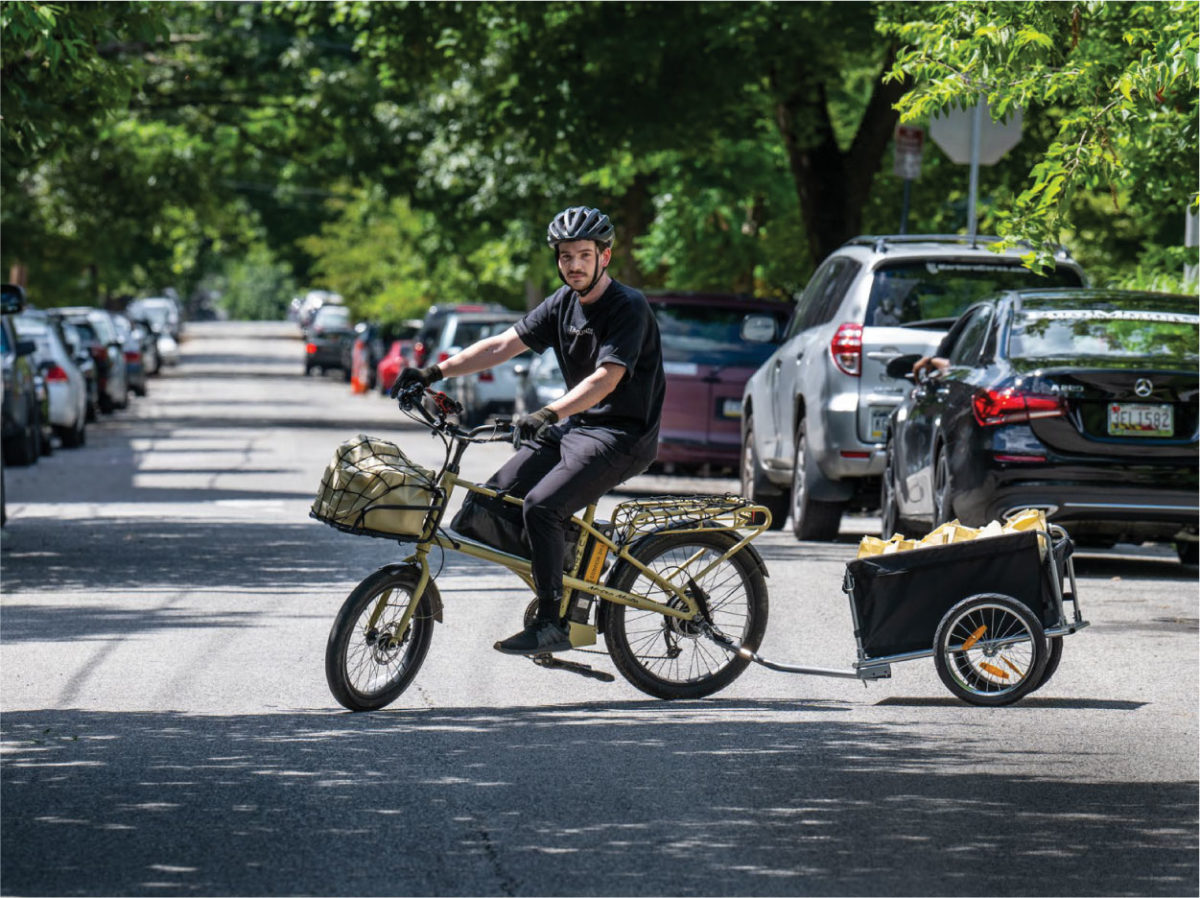Philadelphia technology startups are set for a remarkable year.
With the changing workforce habits with a probable winding down of pandemic-era restrictions, the way we work is set to change. Coupled with some very big local, national and international events, Philadelphia is about to see the spotlight shone upon it like never before.
Let’s dig in to my top five predictions for the local startup scene for 2022:
1. A very big IPO, and more to follow
Let’s get the big one out of the way first: We’re talking about by far the biggest technology startup in Philadelphia, and that’s Gopuff. As I’ve commented before, it’s most probable that 2022 will see a Gopuff IPO. The latest “Series X” was a convertible note that caps out at a $40 billion valuation. If that price were to hold then that would make Gopuff the 16th-largest US IPO ever, coming in right behind Airbnb.
This kind of national attention is going to bring a spotlight on the Philadelphia technology scene. The influx of national talent from Bay Area companies has already begun, and although most of these positions are, of course, virtual, having a draw like this puts Philly on the map of where interesting new tech is happening, much like Austin has capitalized on. The media bubble round a splashy IPO is likely to draw interest in Philadelphia at large, and we’ll expect increased appetite from investors in what big tech idea Philadelphia can conjure up next.
2. Remote vs. in-person technology solutions provide a personal choice
It’s no surprise that the pandemic upended the way we work, and that’s left many businesses in a place of having an office that’s sat half empty for two years. Philly’s first-ever coworking space. Indy Hall, in 2021 shuttered its physical location citing “untenable debt.” In the interim, companies have been hiring like crazy, and per a recent survey, the tech hiring is set to continue in 2022.
Employees, especially software engineers, want the flexibility of remote work, yet there are still benefits to the physical space and office atmosphere. For younger people, especially, the social aspect of a workplace can’t be discounted. This represents a huge opportunity for tech-enabled hybrid work services, that go beyond Zoom fatigue and allow remote and in-person workers to collaborate more naturally.
3. Fractional work takes a bigger percent
Over 34% of the workforce have found that they can restructure how they work to fit around their own busy lives by picking up gig work. Transformative scheduling technology is partly responsible for this, with the large driving and delivery apps. The trend we see accelerating for 2022 is allowing the flexibility of this work beyond gig workers for more skilled professions.
IndeVets, a Philly-based startup that I’ve had the pleasure of working as a fractional CTO for for the past few months, has designed a solution for veterinary professionals to flip the script on how staffing was done in the past. By providing full benefits, but allowing vets the ability to choose their own schedule, they’ve put their needs first, allowing individuals to tailor their own work-life balance.
On a leadership level, the need for fractional CMOs, CFOs, CTOs and a whole host of leaders is increasing. Professionals are finding that they can provide huge value in working on a fractional basis, splitting their time between companies. For growing businesses, this also keeps costs significantly lower than a full-time hire, but can bring in targeted expertise they need. Expect to see a host of talent matchmaking and workflow tools to help individuals who want to break out of the 9-to-5, yet don’t necessarily want to go through all the hoops of incorporating a business and running their own marketing campaigns.
4. Multi-cloud interoperability becomes easier
In 2021, we’ve seen the three big clouds — Amazon’s AWS, Microsoft’s Azure and Google’s Cloud Platform — continue to flesh out their services. The problem is not the breadth of services, it’s keeping them all running at the same time. Outages have continued to wreak havoc throughout 2021 and led execs to look for ways to keep everything up. Problems like this might not be that bad for small startups that can absorb a few hours of downtime while we scroll Twitter looking for clues to what happens, but more critical services can really take a hit.
This has Philadelphia startups turning to our local Old City provider Linode, with the promise of more straightforward services that developers can trust. It’s also spurred the Philly startup Cyclic, which aims to bring simple infrastructure tools that solve multi-cloud at it’s core, and 2022 is sure to see this trend continue, where services are more commoditized and easier to switch form.
5. Single-use packaging gets recirculated
Let’s face it, we’ve all become accustomed to ordering in, and getting delivery for absolutely whatever we want, when we want it. With 2021 exploding, the mislabeled “instant needs” category — which should perhaps be better titled “instant wants,” or simply consumerism — has been co-opted into the dopamine-rich feedback loop of thinking of an item and then seeing it magically appear minutes later.
That all comes at a cost, and that’s packaging. As we cap out the number of humans on the planet at 11 billion, our mindset must change into becoming planetary stewards. At the end of last year, Philly launched its plastic bag ban, and will start writing citations for businesses still handing out bags in early 2022. This is the start of a mindset shift where using single-use packaging will become akin to smoking in a bar: You just can’t do it.
I expect more legislation, but more tangibly a mindset shift, which we can see in startups like The Rounds, using the milkman model to recirculate packing back into the ecosystem. Expect to see deliveries following suit next year, and a host of technology backed logistics to support the change.







